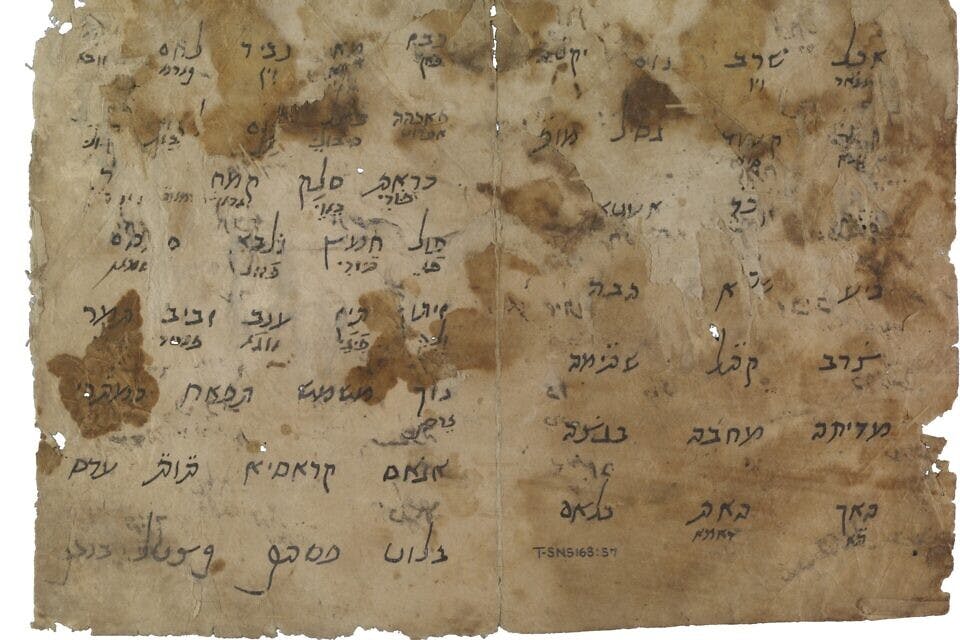
August 16, 2023
The Mysterious Glossary of Maimonides
What might the great scholar have been intending with a recently discovered list he made of seemingly random words from random European languages?
In the summer issue of the Jewish Review of Books is a short essay by José Martinez Delgado, professor of Hebrew at the University of Granada, telling of his recent identification of a bilingual word list—found years ago in the Cairo Genizah—as having been written by Maimonides. Although news of the publication by Delgado and two collaborators of a scholarly article on the subject has been in the media for weeks, this is the first time he has written about it for the general reader. Intriguingly, his brief account of his discovery concludes with the admission that, when it comes to Maimonides’ motives for compiling the list, “I simply don’t know what he was doing.”
But surely, I thought, one doesn’t just compose lists, whether of words, groceries, household chores, or whatever, for no reason at all, especially if one is Maimonides! I wrote Delgado asking for a copy of his article, which appeared in Spanish in the journal Sefarad, and was graciously emailed a PDF of it. After reading its 73 pages, which bear the title “Un nuevo autógrafo de Maimonides: un glosario judeo-arabe con glosas romances,” or “A New Handwritten Document of Maimonides: A Judeo-Arabic Glossary with Romance Language Glosses,” I can only say that Delgado’s bafflement is entirely justified.
The word list wasn’t discovered by Delgado. Rather, it was originally come across among the vast number of still unexamined Cairo Genizah fragments by the Israeli scholar Avihai Shivtiel and described by him, with no ascription to an author, in a 2007 paper in the British Journal of Middle Eastern Studies. It was Delgado, fifteen years later, who identified its script with known samples of the handwriting of Maimonides—who, born in Andalusia in southern Spain, lived most of his adult life in Fustat, the old part of Cairo, and died there in 1204. This identification, backed in the Sefarad article by comparative photographs, is convincing and has not been challenged, to the best of my knowledge, by any scholar in the field.